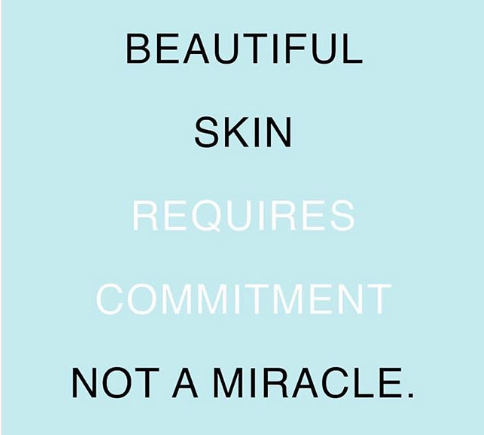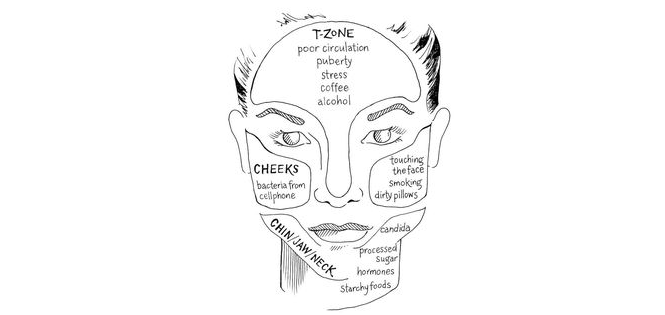If you’ve ever had a reaction after applying a new foundation, moisturizer, setting powder or SPF, you may have wondered if you have sensitive skin.
What is “sensitive skin”?
“Sensitive skin” isn’t a medical term, but more of a blanket term that encompasses a lot of different things for different people. Sensitive skin is categorized based on the reactions and sensations the person experiences. Often debated if sensitive skin is a true skin type, a skin condition or a temporary skin reaction brought on by harsh ingredients, environmental factors, or a stressed immune system, I’m here to share what I know based on my experience along with facts from the interwebs. I’m not a medical professional – please use this as information to help you make more informed decisions for your own skincare choices.
At its core function, our skin is a barrier made up of multiple complex systems and processes to ensure optimum health and protection (pH regulation, hydration regulation, etc). All of these processes are dependent on enzyme activity. In sensitive skin, this activity can become inhibited, compromising the natural barrier function, and reducing lipid synthesis. As a result, water loss increases and irritants are able to penetrate skin.1 Translation: sensitive skin may have a compromised barrier function leading to moisture loss and may be more prone to reactions.
Unfortunately, there are a few of us who are more predisposed to sensitive skin based on our genetics. A number of the skin diseases and conditions linked to sensitive skin are known or believed to run in families. They include acne, eczema, psoriasis, and rosacea.3
How can skin become sensitive over time?
Great question!
I’ve had what my mother always referred to as “sensitive skin” from as far back as I can remember. Granted, I’ve had problematic skin since puberty started at the ripe age of 10, so I’m sure somewhere along the way the intertwining of my genetic predisposition to sensitivities and multiple dermatologist prescriptions, combined with minor social anxiety and working high-stress jobs…things progressively got worse for me over time. Don’t forget: your skin reacts to what’s going on in your life, and life as an adult is a whole hell of a lot more stressful than when we were in middle school.
Your skin comes into contact with external factors that can make skin more sensitive just as much as internal factors. The biggest part that has helped me on my clear-skin journey? Taking the time and effort to understand my internal health better and making necessary changes to have my outside reflect my inside efforts as much as possible. We’re on this journey together ? I’m here to help you along the way to better understand to the best of my ability. For starters, take a look at the factors listed out below – do any of these sound familiar to you?
Internal Factors
- Stress
- Hormonal changes (ovulation, pregnancy, menopause)
- Lack of sleep
- Existing skin conditions
External Factors
- Excessive cold
- Excessive heat
- Dry climates
- Environmental pollutants
- Products’ ingredients (cleansing agents, fragrance, alcohol, etc)
Maybe you’ve noticed your skin is more reactive when you’re on your period (here, here!), you’re stressed out about a big presentation or dreadfully, maybe you work in a toxic work environment (I feels you because I know how my skin + mental state were after that)… or maybe the whipping winter winds have your skin reacting to one ingredient whereas in the summer months your skin can’t handle something else. (I can’t handle acidic ingredients after walking home in the brutally cold city winds in the winter down where I am on the southernmost tip of Manhattan, whereas anything too heavy in the summer will guarantee a same-day pimple for my face and a potential rash on my body). We’re constantly coming into contact with internal and external stressors that impact our skin, more than we realize!
Common sensitive skin reactions
My sensitivities may not be your sensitivities, and our reactions may look nothing alike. We both may be experiencing sensitive skin and should still keep our respective sensitivities in mind when buying new products, seeing a new facialist, or swatching new eyeshadows.
The following are various sensitive skin reactions you may have experienced from products – typically these will happen in and around the area of application. I’ve included an asterisk next to those that are my common reactions:
- Stinging sensation*
- Burning, watery eyes*
- Itchy rash
- Raised rash
- Hives
- Acne of varying degree*
- Red blotchy skin*
- Skin discoloration
- Flakey skin
- Scaly skin*
- General irritation or sensitivity to touch
However, looking at the most common reactions for people who claim to have sensitive skin: “Typically, these are people with more easily irritated skin, either with inflammation, redness, itching, or stinging sensations,” says Annie Chiu, MD, a dermatologist at The Derm Institute in Redondo Beach, CA.3
In case you’re still unsure if you have sensitive skin or not, I encourage you to consult Dermstore’s “10 Signs You Have Sensitive Skin” roundup, because I could not say it better myself. Please know this is not a bonafide way to determine your condition, but it may certainly shed some light for you ??
________________________
Photo via




